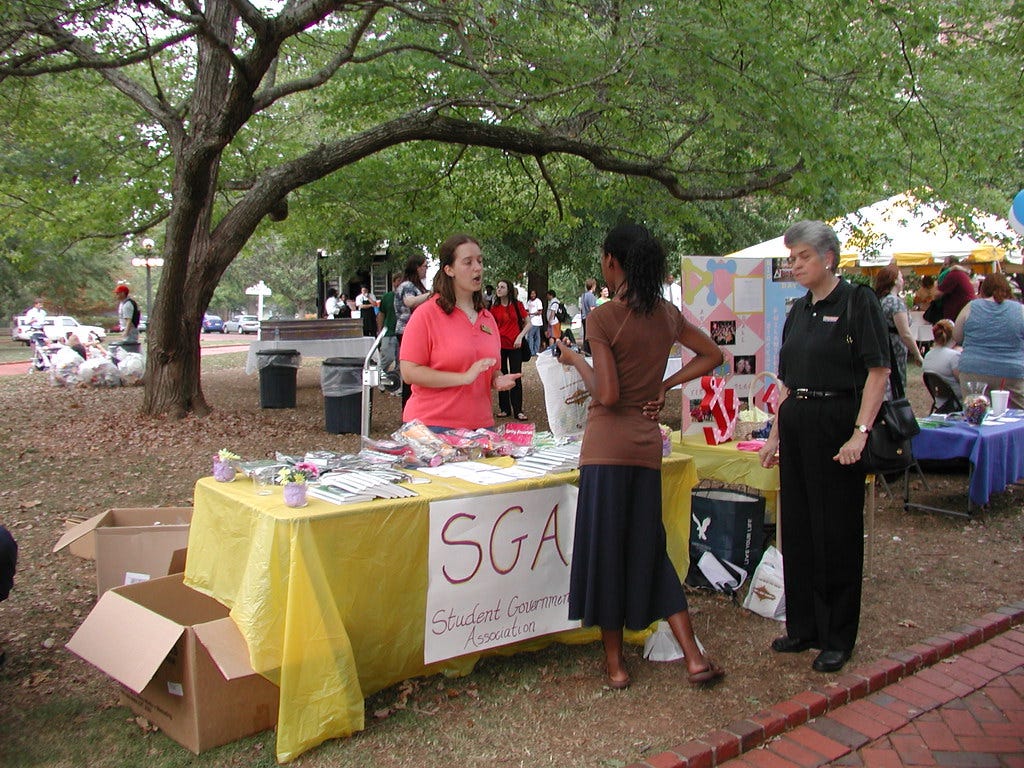
My son recently dropped the surprising news that he and a friend had decided to run as a duo for Senior Class President. A junior at a large Southeast Portland public high school, my son has not previously participated in student government or written for the school paper or done any of the things that showed a desire to serve in this way. He and his potential co-president seem to be serious about the election, and they’ve put some solid campaign materials together. I should also mention that he and his friend differ from each other in many ways, from gender to religion to cultural background to height to interests, and that they’re making a bid to run as potential co-presidents rather than the traditional model of president and vice-president.
Voting ends as I write. I have no idea whether he and his friend will win this election, and I don’t think my son has or wants a future in politics. Still, I feel like I’ve learned something about governing from watching his and his competitors’ Instagram videos and from talking with him about the whole endeavor. In fact, I’m going to follow the example of his naïve, novice bid by naming, without qualifications or experience of my own, 4 interconnected lessons. I believe these transfer readily beyond office-seeking to office-holding, and however prestigious or modest the office.
Lesson 1: Desire
My son and his friend chose to run for Senior Class President, and they seem to want to win, but they clearly also recognize the absurdity of their potential service in that role. Their own bemusement in potentially serving has helped me realize that if you want the governing job too much, you’re wrong for the job. You’ve clearly got to want it some – why else run? – but if you want to be it more than you want to do it, it shouldn’t be you.
Lesson 2: Trust
Trust matters more than any particular policy position. Voters need to feel they can trust their political leaders, whether in high school or in other challenging and influential leadership roles throughout the state. Over the past few weeks, I’ve been fortunate to participate in several conversations with civic leaders in Portland about the biggest challenges facing the region. Whether the issue at hand has been democratic participation, race and belonging, wealth and inequality, or community safety and crime, the larger underlying concern, the issue for for a striking majority of people is trust. Anyone who is going to govern has to be committed, in word and especially in deed, to earning trust.
Lesson 3: Humor
My son and his co-candidate seek a mostly ceremonial, pressure-free office. They’ve run their campaign with a lightness appropriate to that office. That light approach has made me realize that the heavier the office and the responsibilities it includes, the more it can use some lightness and humor. We all know that there’s simply too much that has to get done, too many obstacles to getting most of it done, and too much on the line if we don’t. Our leaders could help us acknowledge this, and we could laugh, respectfully and together, at this only-partially-fixable fix we’re in. Shared laughter—humble laughter—would help re-build trust.
Lesson 4: Collaboration
Seeing my son and his partner riff off each other in unexpected but sensible ways reminds me how much more becomes possible when people work together. Governing requires more than any one person can live up to. It’s only through collaboration that someone has a chance to do it well. Here’s how Chad Karges, co-founder of the High Desert Partnership in Harney County, put it in a recent conversation on Oregon Humanities’ new podcast, The Detour: The way that High Desert Partnership’s collaboration is successful is [that] it's not about me. It's about all the people that are engaged. They are what make collaboration successful. And so I just want to leave you with that, that it's a group effort to make a collaborative outcome be successful.
That’s where I’ll wrap up this unschooled set of goals for Oregon’s next Governor. Yes, there is too much to do. All of it is serious and urgent. Therefore: more collaboration, more trust, more humor, and more desire to govern well than to be the Governor.
Adam Davis is the Executive Director of Oregon Humanities. The views expressed are his own.



